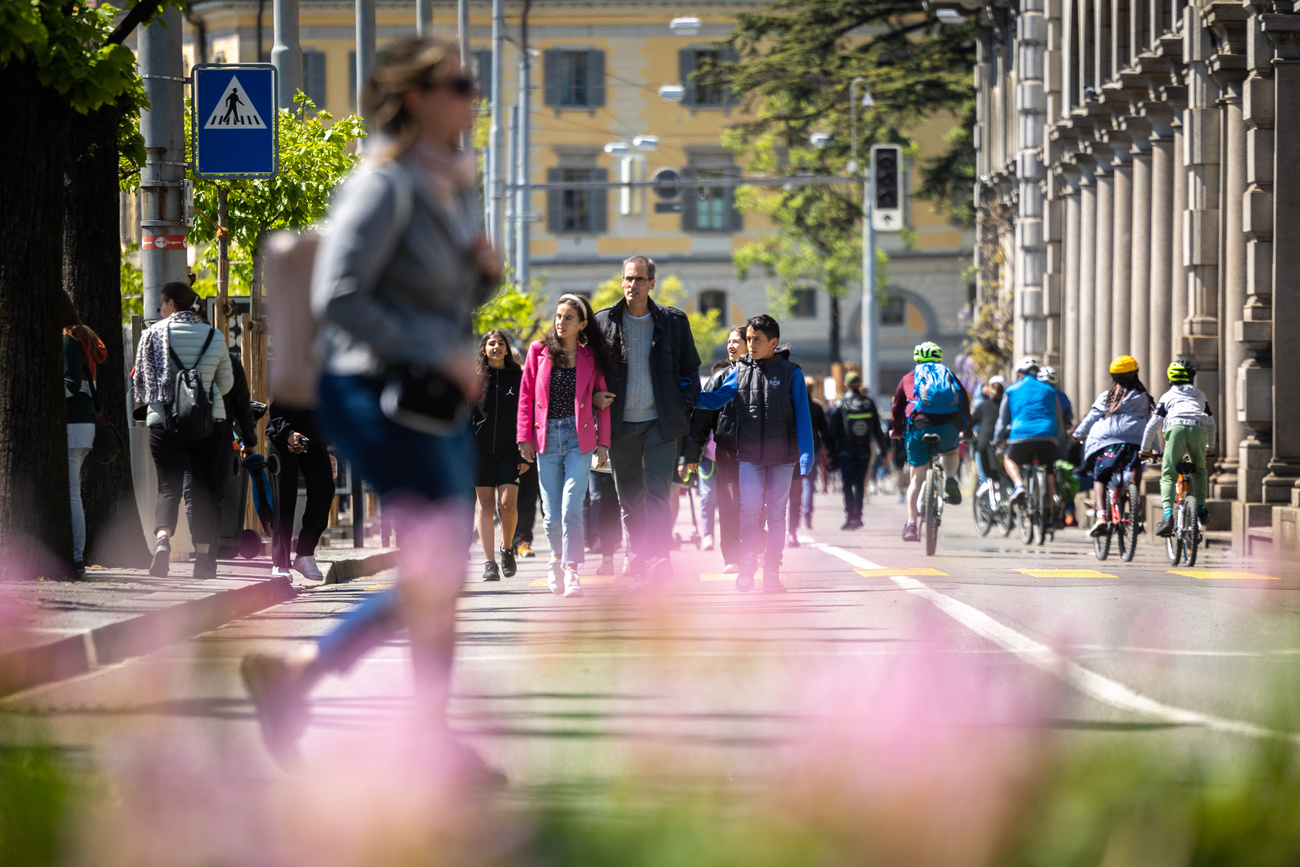
Switzerland Today
Greetings from Zurich!
The good citizens of Appenzell Inner Rhodes have taken a momentous decision on the first update of the canton’s constitution in 152 years. What on earth could this bold move have produced? Read on to find out more.
Meanwhile, we bring you a round-up of the main news of the day.

In the news: ICRC refuses to consider control of UNRWA, Amnesty International takes issue with Swiss government over Gaza and Swiss prisons fill up with more inmates.
- ICRC Director Pierre Krähenbühl says his organisation has no intention of taking over the running of the UN Palestinian Relief and Works Agency (UNRWA).
- Amnesty International launched a campaign, entitled “Humanitarian Switzerland, where are you?” by handing in two petitions to Bern demanding a resumption of funding for the UNRWA.
- The number of Swiss children exposed to abuse appears to be rising – but the 13% increase is also due to greater vigilance and better recording of such incidents.
- Swiss jails have 7% more inmates than a year ago and the 95% occupancy of prisons is the highest since 2014.
- The Trade Union Federation has expressed alarm and anger at the growing gap between the wealthy and mid-to-low income earners in Switzerland.
- The storm that ripped through La Chaux-de-Fonds last year caused CHF117 million of damage – a significantly higher bill than previously estimated.

The canton with a hardier constitution
Appenzell Inner Rhodes is famous for sticking to tradition. Elections and big votes in the canton are still decided by a show of hands in the open air.
Revising the canton’s constitution for the first time in 152 years is therefore a momentous event. But the media is disappointed with the results of the update, which appear a bit of an anti-climax.
The good citizens of the canton were never going to rip up the constitution and start again. A few amendments are quite enough fuss for one generation.
The big-ticket change now gives the governing council freedom to spend up to CHF2 million without the need for a vote – which is double the previous number.
The right to vote will also be extended to people with impaired mental capacity once the new constitution comes into force (most likely in 2027).
A revision to the agricultural laws also affords livestock better protection against mistreatment.
Some citizens complained to Blick that the changes have been too timid. A few even suggested in letters to the newspaper’s editor that voters had been duped with more grandiose promises. But the Appenzell Inner Rhodes council dismisses such complaints as nonsense. “We have not done anything dishonest, despite accusations in letters to the editor,” one councillor told the newspaper.

Cryptocurrency national reserves?
It may surprise you to learn that a popular initiative has been launched to compel the Swiss National Bank to invest part of its reserves in Bitcoin.
A group of cryptocurrency enthusiasts have been trying for a couple of years to persuade the central bank to take this course in the name of financial sovereignty.
The SNB is having none of it, so there’s nothing left to do but to try to gather 100,000 signatures to force a nationwide vote on the issue.
The initiative has barely begun gathering signatures, so it’s too early to tell what type of support it will garner – let alone surmise if it would eventually succeed.
It might also surprise you to learn that while the SNB is opposed to Bitcoin investing on behalf of the nation, the central bank does take a keen interest in the related area of digital assets.
The SNB is involved in several projects with the Bank for International Settlements to see how Distributed Ledger Technology (upon which Bitcoin is based) can enhance financial trading.
And next month, the SNB is co-hosting a conference on the theme of “Cryptoassets and Financial Innovation”.
Perhaps in the light of this information, the popular initiative does not look quite so far-fetched.

In compliance with the JTI standards
More: SWI swissinfo.ch certified by the Journalism Trust Initiative








